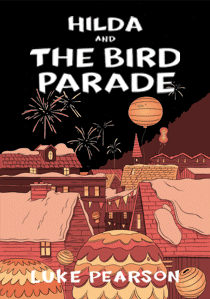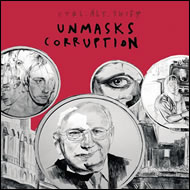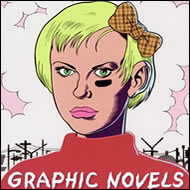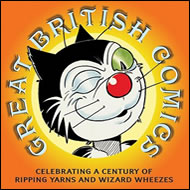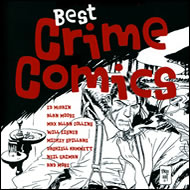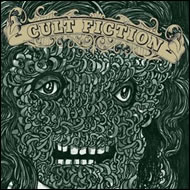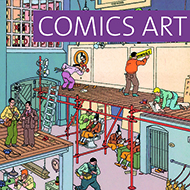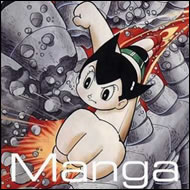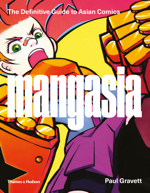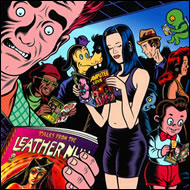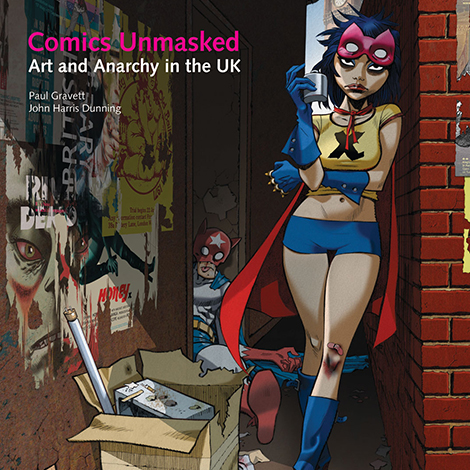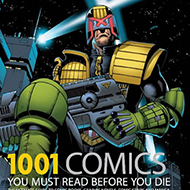Steven Appleby:
Dragman

Cross-dressing can be empowering, and in August Crimp’s case, ever since he first tried on one of his mother’s stockings, it also empowers him to fly. As a shy adult, he ventures into discreetly wearing women’s clothes in public - discreet until the day he spots a girl falling to her death from a London museum rooftop. With no official superheroes nearby, August feels compelled to rescue her. His good deed is trumpeted by the media who dub him ‘Dragman’, not a name he’d have chosen himself: ‘I dress as a woman, but I’m not doing drag. If anything, I’m trans…I think. I’m really just trying to be myself.’
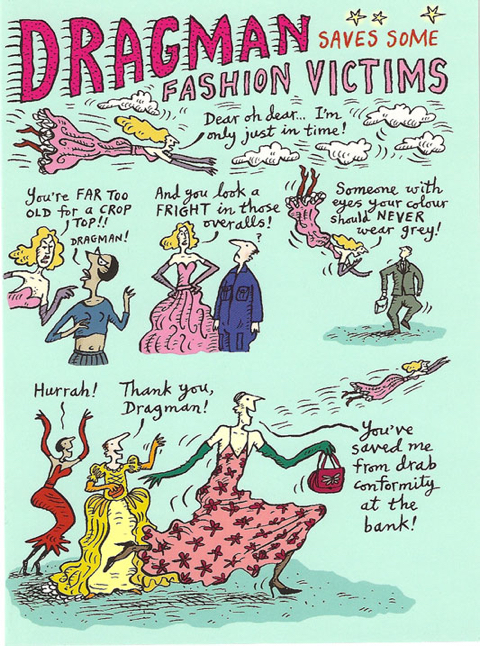
In Dragman, the British cartoonist Steven Appleby for the first time expands the unpredictable comedy and quivering, quirky lines of his short, often non-sequitur newspaper strips (where Dragman debuted, above), into a 320-page, intricately plotted graphic novel, in which he weaves together a superhero origin and comeback with a serial-killer mystery. From page one, there are the murders of trans-women, made more gruesome by being told in prose not pictures, the sick killer relishing every stage of stealing their lives and their souls. These are leavened by plenty of social satire, philosophical ruminations and elements of autobiography. Appleby is a trans woman himself (he uses the male pronoun), out for years to his family and friends, and in public since 2007. So he can draw upon his experiences to inform the path which August takes to ‘find’ himself, a convoluted map of which appears across the novel’s endpapers.

Key points are August’s marriage and fatherhood, which initially cause him to keep his transvestism only occasional and strictly private. He also renounces any further feats of aerial derring-do, because his wife suffers from severe superhero phobia. This was instilled in her by her narrow escape from dying, along with her parents, during the showdown between a destructive super-baddie and a revered superhero called The Fool. Her mother’s last words were, ‘Watch out for that bus…’, as it dropped on them from above. Her parents’ deaths were forgotten as merely ‘collateral damage’ from the triumphant slugfest that saved the rest of the capital. But now the world needs saving again, and August is finding his secrets increasingly hard to keep.
Appleby understands how the superhero genre lends itself to parables about double lives, whether in the mutant X-Men, symbols of misunderstood minorities, or the fractured psyches behind the masks in Watchmen. He adopts the latter’s pulsing nine-panel grid to imagine a darkly farcical society where superheroes are mercenary and nobody gets rescued unless they’ve bought superhero insurance. To gain his stripes, Dragman must be inducted into the heteronormative, rule-bound Superhero Club. At Dragman’s tribunal, when the pompous inquisitor insists, ‘We each have a unique costume’, one member unwittingly explains, ‘Like clowns.’ Appleby’s timing and asides are priceless.

More disturbing is how the scientific discovery of the soul has also been monetised. In a timely and deft warning about our rampant corporate neoliberalism, Appleby depicts Faustian dealers offering people short on cash to buy their souls and selling them for profit. But after surrending their souls, people find that ‘nothing made much sense anymore, except jumping out of a plane’. Craftily, Appleby installs Black Mist, whose shrewd entrepreneur has monopolised ‘the soul trade’, in London’s Shard, on the ninety-seventh floor (officially it has ninety-five). And it’s atop this aptly phallic, Tolkienesque temple to economism, that Dragman comes to face his nemesis – and his true self.
To the end, Appleby reveals further twists, secret identities, even the locations of Hell and Heaven, always returning us to Earth with his humane tenderness and lightness of wit. Dragman is the fable we need for a changing world: it shows us that the greatest superpower may just lie in valuing your soul.
Posted: September 25, 2020This review was published in edited form in the Times Literary Supplement, July 17th, 2020.

